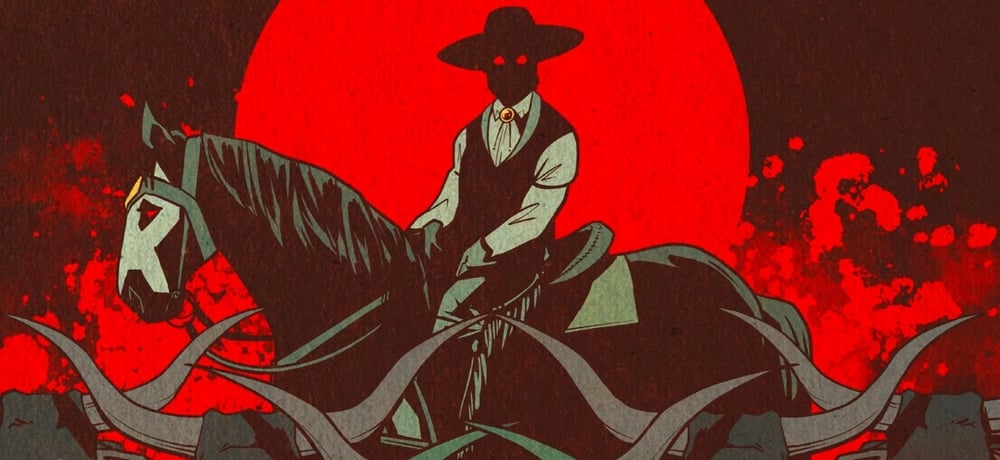






Dysfunctional families have long been a cornerstone of the movies; conflict is key, and the closer to home the harder it hits. Horror has capitalized on this for several decades; Spider Baby (1967), The Baby (1973), The Texas Chain Saw Massacre (’74), and The Hills Have Eyes (’77) are just a few examples of familial ties more than a little twisted and frayed. But hey, that’s hospitality North American style; let’s hop across the pond and check in with the clan in Girly (1970), Freddie Francis’ veddy British and very dark comedy of manners, games, and psychotic role playing.
Distributed by Cinerama Releasing in February stateside but not until April in its homeland, Girly did much better business in North America than back home (where it was released under its original title Mumsy, Nanny, Sonny, & Girly); this can be attributed to the U.K. buttoning up while exploitation films pulled everyone else’s knickers down around the globe. But Girly is plenty naughty in spirit and intent, not to worry.
Our film opens on a vast estate, as Mumsy (Ursula Howells – Torture Garden) and Nanny (Pat Heywood – Wuthering Heights) knit under the rising sun while Sonny (Howard Trevor) and his sister Girly (Vanessa Howard – The Picture of Dorian Grey), two emotionally stunted twenty-somethings, head for the parks and zoos looking for “new friends” to play with. When they find someone suitable (preferably the homeless – less paperwork), they take them back to the estate for a series of games, supervised by Mumsy and Nanny; and as long as the “new friends” follow the rules, life can be fun. If they don’t, it can be short.
While on another playful romp through the park, Sonny and Girly happen upon an older, intoxicated male (Michael Bryant – Goodbye, Mr. Chips) and his younger date. One unfortunate “accident” on the park slide later, New Friend (as he is henceforth called throughout) is forced to stay on the estate with the cheerfully morbid mob lest he be blamed for his date’s situation. However, he is very good at reading the room, and slowly pits the clan against each other to improve his social standing (and his odds of survival). Will New Friend live to play another day, or be “sent to the angels” with the other guests?
Freddie Francis wanted to make a film exclusively at Oakley Court, the estate whose exterior graces such horror staples as The Curse of Frankenstein (1957), Dracula (’58), Francis’ own The Evil of Frankenstein (1964), Die, Monster, Die! (’65), and The Rocky Horror Picture Show (1975). Screenwriter Brian Comport (The Asphyx) found a (by all accounts terrible) play entitled The Happy Family and just used the central conceit of a mother, nanny, son, and daughter playing homicidal games with young socialites all due to the father leaving the brood in the lurch. (Okay, that’s pretty much the whole conceit.) While the play takes hard turns into incest and lesbianism, Francis and Comport leave that behavior (and many other questions) up to the viewer to envision as they see fit; instead they focus on matters of deportment in the face of insanity and the collapse of a matriarchy filtered through a maniacal kiddie program. Having said that, it is plenty pervy, thanks to a subversive and hilarious performance from Howard as Girly.
Alternating between an immature coquette, brazen schoolgirl and murderous psychopath (with a few nods towards petulance), Howard is simply mesmerizing and not because of her provocative prep school outfit, although that is definitely part of the allure; she’s a venomous spider who draws in the lecherous to her web with a warm promise of the forbidden. It’s only when she’s confronted by her own fears of jealousy, abandonment, and sexual awakening at the hands of the middle aged New Friend that her perfect world starts to crumble. It really is amazing work from a talent who simply left the business two years later, dejected at her lack of success.
Mumsy, Nanny, and Sonny’s power plays are no less fascinating (well, Sonny’s is more of a reaction to Girly than anything else); Mumsy operating under a simple motif of passive aggressive nurturing with dire consequences for those who disobey, and Nanny below her yet desperate to be out from under her thumb. When New Friend starts to upend the hermetic nature of the family – he gains the affections of all the women by bedding them separately and secretly – their isolation is shattered and splattered with deceit and malice.
All done with a smile, mind you; Francis and Comport have made a comedy of manners with Girly, a leering, winking potpourri of bad taste that tastes so good. Keep in mind, everything is implied – whether that be the close relationship between Mumsy and Nanny, or Sonny and Girly, or New Friend and practically everyone – and nothing is shown, imagination and clever cuts used to persuade us of our degradation.
But what are we even buying? The easy analogy would seem to be the monarchy and its outdated structure, but beyond Mumsy at the head it’s hard to make the comparison. A social commentary on motives and lies and the masks we all wear to further our personal causes? This seems to hit closer, no more so in the fact that we don’t even know if they’re related to each other; the familial assignments of mother, nanny, and children seem arbitrary at best, especially as the film reaches its amusing denouement. Perhaps Francis et al just wanted to present some cheeky fun, a children’s lark filled with nursery rhymes and felonious crimes? Whatever angle you ogle it from, Girly only appears naughty from the outside looking in; if you’re part of this family, it’s all just fun and games. As long as you follow the rules.
Girly is available on Blu-ray from Scorpion Releasing.
Next: Drive-In Dust Offs: THE NIGHT WALKER (1964)